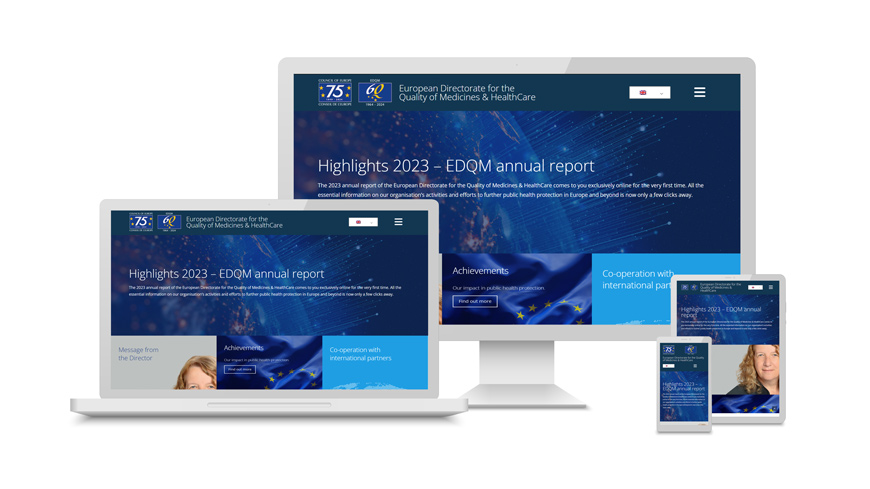EDQM initiatives on medicine shortages
Medicine shortages continue to threaten European healthcare systems, resulting in discontinuity of care and increasing costs. This problem predates 2020, but has been exacerbated by events related to the consequences of the COVID-19 pandemic and an unstable geopolitical situation. Multiple ongoing initiatives have been set up worldwide to tackle shortages at every level of the pharmaceutical supply chain.
Hospital and community pharmacists are on the frontline of efforts to mitigate the negative effect of medicines shortages. In some situations, extemporaneous and stock preparations can provide a temporary solution.
The European Committee on Pharmaceutical and Pharmaceutical Care (CD-P-PH) and the European Pharmacopoeia Commission (EPC) at the European Directorate for the Quality of Medicines & HealthCare (EDQM), in synergy with the current array of initiatives, are conducting two distinct but closely related projects designed to help ensure the availability of safe pharmaceutical preparations of appropriate quality. The EDQM will provide the secretariat for these initiatives, which are intended to give member states and healthcare professionals the knowledge and tools they need to provide the healthcare services people require in a timely manner.

Methodological guide to select medicines at risk of shortages
Objective: Support national competent authorities and healthcare professionals in the identification and selection of medicines that can be in short supply during public health emergencies and that can be prepared in hospital (and/or community) pharmacies.
Terms of reference for the “Methodological guide to select medicines at risk of shortages”

European Drug Shortages Formulary
The European Drug Shortages Formulary (EDSForm) project is one of the ways in which the EDQM is helping to tackle medicine shortages in Europe and beyond. With work led by the European Drug Shortages Formulary Working Party (EDSForm WP), the aim of the project is to provide guidance for hospital and community pharmacists on preparing unlicensed pharmaceutical preparations for use during medicine shortages, both ongoing and potential. The EDSForm WP (Terms of reference) focusses on two distinct types of deliverables to support this initiative:
EDSForm monographs that provide methods for the preparation and quality control of standardised unlicensed pharmaceutical preparations to be used as a temporary replacement for essential but potentially unavailable licensed medicines. Compiled in the Formulary, these monographs are intended to provide long term and proactive support to health care professionals. A dedicated publication platform will be available to provide free access to the monographs.

Technical recommendations of the EDSForm WP
Technical recommendations of the EDSForm WP for the preparation (when considered appropriate) of extemporaneous or stock unlicensed pharmaceutical preparations to be used during active shortages of licensed medicines for which there is no suitable EDSForm monograph. These technical recommendations are intended to serve as a source of products, formulations and relevant guidelines. They include reference to the source of data, evidence ranking and guidance information and to provide a short term, reactive support to health care professionals.
European Drug Shortages Formulary project: approval of framework and procedure documents
Shortage of aprepitant, powder for oral suspension – Expert opinion of the EDSForm Working Party
- EMA Executive Steering Group on Shortages and Safety of Medicinal Products (MSSG)
- EMA “Good practice guidance for patient and healthcare professional organisations on the prevention of shortages of medicines for human use”
- CDBIO Equitable access in scarce resources: Equity in healthcare
- HMA “Availability of medicinal products for human use” – Best-practice in EU member states
- EU Commission Structured dialogue on security of medicines supply
- CHESSMEN “Coordination and Harmonisation of the Existing Systems against Shortages of Medicines” EU Joint Action to mitigate medicine’s shortages




